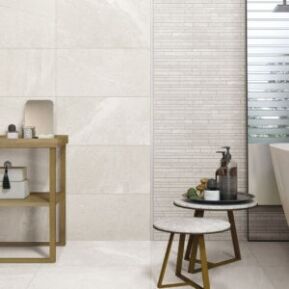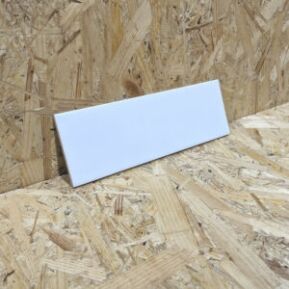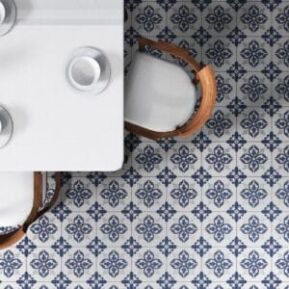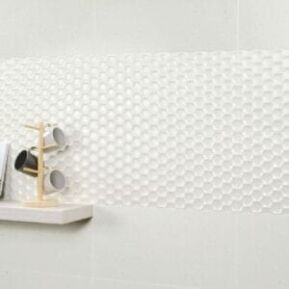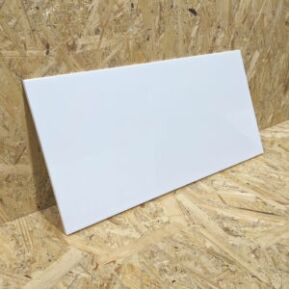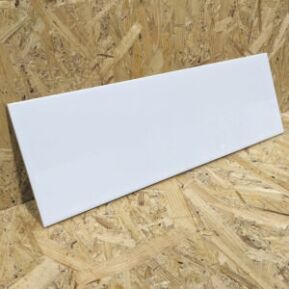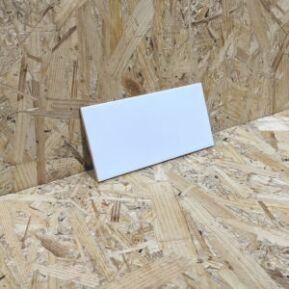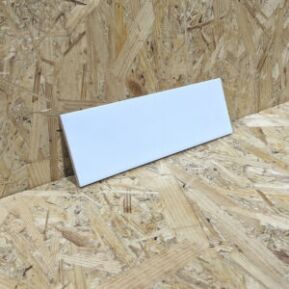A Beginner’s Guide to Choosing Wall Tiles
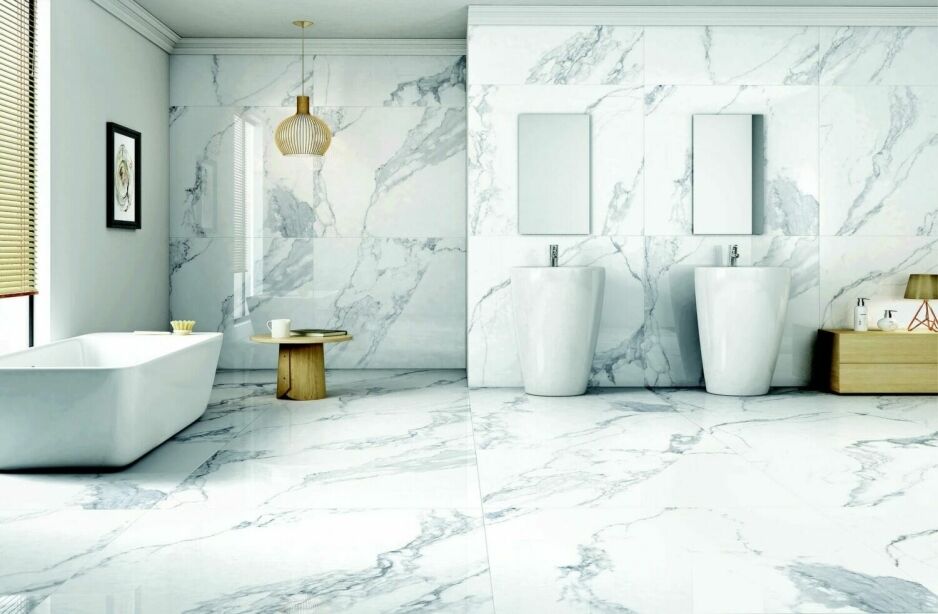
When it comes to kitchen or bathroom renovations, upgrading wall tiles is often one of the simplest and most impactful changes you can make. Wall tiles can transform a room’s look and feel instantly, offering style and functionality without blowing your budget.
If you’re planning a renovation and considering new wall tiles, you’re in the right place. Over the years at Ross’s Discount Home Centre, I’ve helped many customers—new and experienced alike—navigate the options, styles, and materials available. From tile type to finish and size, there’s more to choosing wall tiles than meets the eye. Most people find the range of choices overwhelming, and that’s completely normal!
That’s why I’ve put together this beginner-friendly guide to help you make informed choices. We’ll cover everything you need to know about choosing wall tiles to ensure your renovation achieves the style, durability, and ease of maintenance you’re after. Whether you’re updating a kitchen splashback, giving your bathroom a fresh look, or tackling a larger project, this guide will set you on the right path to choosing tiles with confidence.
Types of Wall Tiles
Before you jump into buying wall tiles in Perth, you should know that they come in various types. Some common types include glazed ceramic, glass and metal, stone, mosaic and border and trim wall tiles.
- Glazed ceramic tiles are the most popular wall tiles, presumably because they are also the most affordable. They are made of clay mixed with natural minerals, making them incredibly durable and hardwearing. They are also easy to clean and maintain. Thanks to modern manufacturing methods, glazed ceramic tiles are available in various colours, designs, styles, shapes and sizes for you to choose from.
- Glass tiles and metal tiles are more upscale choices, and they may not suit everyone’s budget. Metal tiles are usually made out of iron, stainless steel, copper or brass, and they offer an elegant metallic finish. On the other hand, glass tiles are available in both transparent and coloured options in a range of textures. Both glass tiles and metal tiles are durable and easy to clean, making them perfect for use as wall tiles.
- Stone tiles made of granite, marble, slate or limestone are great choices both for flooring and for walls. They are available in a range of designs, styles and colours and their texture ranges from rustic to formal, depending on the stone material. While stone wall tiles may be slightly expensive, you can expect to find marble tiles and granite tiles at reasonable prices. However, if you’re after a more affordable option, consider marble look tiles and stone look tiles.
- Mosaic tiles are another popular type of wall tile. These tiles are usually much smaller than normal tiles and come in square, circle or hexagonal shapes. Combining many small mosaic tiles together offers an interesting visual effect, allowing you to create designs or patterns. Mosaic tiles can be created from various materials, with stones and pebbles being the most common. They are also an economical choice for use as wall tiles.
- Border and trim tiles are a special type of tile used to create a finishing effect. Usually, these tiles are used to separate one section of tiles from another. Border and trim wall tiles are available both as mosaic sheets and as single tiles. Depending on your space, you may or may not need to use these tiles. If you do choose to use them, you’ll give your space a much more professional and finished look.
Understanding UPEC Classification for Wall Tiles
When it comes to choosing wall tiles, the UPEC classification system can help you find the best match for your needs. This system rates tiles based on four factors: wear, impact, water resistance, and chemical resistance.
Here’s a breakdown of what each letter means in simple terms:
- U (Wear) – How well the tile stands up to daily wear, rated from 2 to 4. A higher number means more durability.
- P (Impact Resistance) – The tile’s ability to withstand shocks and knocks, rated from 2 to 4. Higher ratings mean it’s more resistant to accidental bumps.
- E (Water Resistance) – This shows how well the tile resists water, rated from 1 to 3. Higher ratings are best for areas exposed to moisture.
- C (Chemical Resistance) – Indicates the tile’s resistance to chemicals, rated from 0 to 2. Higher ratings are useful for spaces where spills might occur, like kitchen splashbacks.
For most indoor spaces, a UPEC rating of U=2, P=2, E=1, and C=0 is generally enough. But if you’re tiling a bathroom or kitchen, it’s best to go with tiles that have higher ratings for water and chemical resistance. These areas are often exposed to moisture, grease, and occasional cleaning products, so a more robust tile will stand the test of time.
Rectified vs. Unrectified Tiles
When choosing wall tiles, you’ll also want to consider whether rectified or unrectified tiles better suit your style. Rectified tiles are machine-cut for precision, giving them straight edges that allow for minimal grout lines. This creates a seamless, modern look, which is ideal for contemporary or minimalist designs.
In contrast, unrectified tiles (also known as non-rectified, natural-edge, or cushion edge tiles) have slightly uneven edges that require wider grout lines, adding texture and charm—perfect for more traditional or rustic settings. Both types offer unique design possibilities, so consider the overall feel you’re aiming for in your space.
For a deeper dive into how these options can impact your design, explore our guide on Rectified vs. Unrectified Tiles.
With these core aspects in mind, let’s now look at which types of tiles are suited to specific applications.
Application-Specific Wall Tile Choices
After understanding durability and aesthetics, you’ll want to choose tiles suited to your specific application. For instance, glossy, water-resistant tiles work well for bathroom walls, as they’re easy to clean and repel moisture. Matte or textured tiles, which hide smudges, might be preferable for kitchen splashbacks that see more food splatter and grease.
Wall tiles for kitchen splashbacks
Kitchen splashbacks are always subject to stains and spills. As such, you should choose splashback tiles that are durable and resistant to water and chemicals for your splashback. Glass tiles, ceramic tiles, subway tiles, and mosaic tiles are wonderful choices for wall tiles for kitchen splashbacks.
While all these types of tiles work wonderfully well for splashbacks, you should consider your budget before making a choice. Glass wall tiles are a sophisticated and refined choice for splashbacks, but they are a relatively expensive option. On the other hand, mosaic tiles and glazed ceramic wall tiles are comparatively more economical.
Glazed ceramic tiles, as well as subway tiles and mosaic tiles, are available in a range of colours, designs, and styles. Regardless of what design style you’re trying to achieve, you can do it by choosing ceramic tiles or mosaic tiles wisely.
For high-quality yet affordable mosaic, subway, and ceramic wall tiles in Perth, consider us at Ross’s Discount Home Centre. In particular, I’d like to recommend our new Edge range, Gloss White Wall Tile 150x150mm and Gloss White Wall Tile 100x300mm. These modern subway tiles will allow you to create a stylish and functional splashback for your kitchen.
Explore our article on Tiled Kitchen Splashback Ideas and Matching Kitchen Wall Tiles to Today’s Top Design Trends for inspiration if you’re searching for trending wall tiles for your kitchen.
Wall tiles for bathrooms
Bathrooms are always subject to high amounts of moisture. Therefore, when choosing wall tiles for your bathroom, you need to choose a water-resistant and durable tile. Glazed ceramic tiles, stone tiles and glass tiles are all great choices for bathroom wall tiles.
While using any of these tiles for bathroom walls is safe, do note that stone and glass tiles cost significantly more than glazed ceramic tiles.
Glazed ceramic tiles are available in many designs and styles; some even replicate natural stone’s look. Also, you’ll find plenty of choices with glazed ceramic tiles, while the choices with natural stone and glass tiles are comparatively limited.
For exceptional ceramic tiles for use in bathroom walls, consider our Matt White Wall Tile (Rectified) 30x60cm tile or our Gloss White Wall Tile 300x600mm. Both of these tiles feature a gorgeous design and are incredibly resistant to water.
Our article, Tips for Choosing the Perfect Bathroom Wall Tiles, offers more helpful advice on choosing bathroom wall tiles.
Wall tiles for showers
Showers are yet another area subject to high amounts of moisture. Again, when choosing wall tiles for shower spaces, you need to choose a tile that is exceptionally resistant to moisture. Glass tiles, natural stone tiles, and glazed ceramic tiles all work well for shower walls.
One important thing you should consider before choosing a tile is the design of your shower space. Some shower spaces come in curved or other fancy designs. If your shower is designed as such, you may want to use mosaic tiles instead to create a more visually appealing effect. Even if your shower is designed in a standard style, mosaic tiles are still a great and cost-effective choice and much easier to install in a small space such as a shower. Subway tiles are another popular choice, as you will see from the two bathroom images featured in this post!
To use white subway tiles in your shower, choose from our wide range of white tiles. Alternatively, if you’re interested in installing mosaic tiles, check out our range of elegantly designed and highly water-resistant mosaic tiles.
Conclusion
If you’re looking for wall tiles in Perth, you should know a little about them before purchasing. Wall tiles come in various types, including glazed ceramic tiles, glass and metal wall tiles, stone tiles, mosaic tiles, and border and trim tiles. Also, wall tiles are rated under the UPEC classification to denote their resistance to stress, water, and wear and tear. The higher the UPEC rating, the more resilient and durable a wall tile is.
For kitchen splashbacks, mosaic tiles and glazed ceramic tiles are great options. On the other hand, glass tiles, natural stone tiles, and glazed ceramic tiles work wonderfully well for bathrooms and shower spaces. You can also use mosaic tiles in shower walls to create interesting visual effects.
And, for the best quality wall tiles Perth has to offer, look no further than Ross’s Discount Home Centre. We offer a range of kitchen tiles and bathroom tiles so you’re sure to find the perfect wall tiles, no matter the application.
